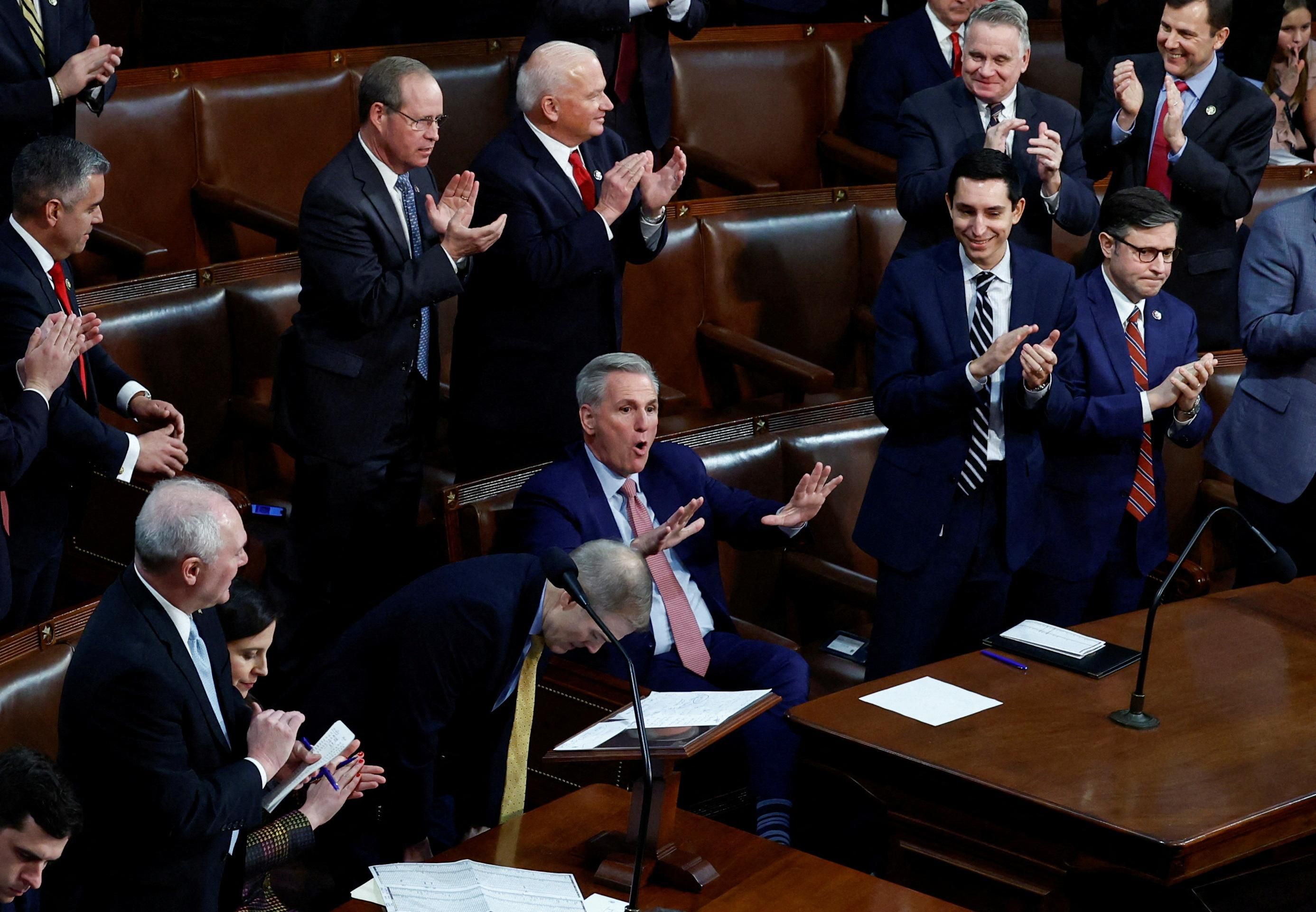What We’re Watching: Capitol Hill chaos, Putin’s biceps, Myanmar’s ‘vote’
The House speaker fiasco: Day 2
Another day, another letdown for Kevin McCarthy. For a second consecutive day, the Republican stalwart again failed to clinch enough votes from his own caucus to become House speaker, one of the most powerful jobs in US government. After six rounds of voting over two days – and a late-night team huddle on Wednesday in which McCarthy said he was willing to make significant concessions – 20 anti-establishment Republicans still refused to cast their ballot for McCarthy. Though they have some different demands, the broad consensus is that McCarthy is a creature of the swamp, slavish to special interests. What’s more, former President Donald Trump reportedly called on the group of detractors – a ragtag of his most ardent devotees – to “knock it off.” But the group shows no signs of backing down – for now – going so far as to say that Trump should have instead called on McCarthy to withdraw. Resolving the stalemate could still take days or weeks, and whoever prevails will emerge a weak leader with limited ability to control an unruly caucus. The last few days, however, have been a boon for President Joe Biden and the Democrats. Even Rep. Marjorie Taylor Greene, a Republican of the QAnon variety, has distanced herself from some far-right members of the GOP by supporting McCarthy’s bid. She said on Wednesday that the current House speaker fiasco “makes the Republican Party look totally inadequate and not prepared to run the country.”
Putin’s latest flex
Russia’s President Vladimir Putin likes to flex his muscles. Sometimes the effect is comic, like when the Kremlin publishes a calendar with promotional photos of shirtless Putin on horseback or shirtless Putin bathing in icy waters. At other times, the effect is tragic, as when Russia fires missiles at Ukrainian cities to prove that, though it can’t conquer Ukraine, it can still punish its people. Other flexes are confusing. On Wednesday, Russia sent a frigate toward the Atlantic Ocean armed with hypersonic cruise missiles. His defense minister noted that “This ship, armed with ‘Zircons,’ is capable of delivering pinpoint and powerful strikes against the enemy at sea and on land.” It’s not clear what Russia is threatening (Armageddon?) or whether this is mainly a bid to save face after Ukraine used US-supplied weapons to kill dozens, maybe hundreds, of Russian soldiers in a single attack earlier this week. Or maybe this flex was planned well in advance. But a downside of Putin’s need to project strength is that it keeps young Russian men on high alert that their government may soon force them to pick up a rifle and head to Ukraine. A little-known organization called the “Soldiers’ Widows of Russia” has called on Putin to order a “large-scale mobilization” of new troops to Ukraine. If that’s another Putin flex, it’s one that has an impact at home.
